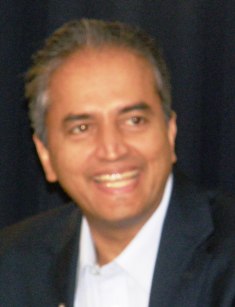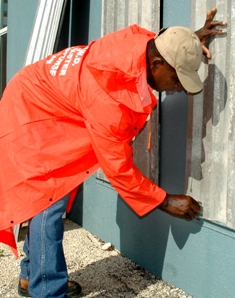 Headline News
Headline News

Cops burn $2.75m of cocaine
 (CNS): Millions of dollars worth of drugs went up in smoke at the George Town landfill this morning as the RCIPS officially burned a huge haul of drugs recovered from the country’s coastline recently. Police said a significant portion of the drugs that were set alight had washed ashore on Monday night in East End. On 8 November officers were informed that a large quantity of drugs had been found on the beach. Investigations revealed that the packages contained around 78 lbs of cocaine. Together with a smaller haul in West Bay last month, which police think is connected, the cocaine recovered represents a street value of $2.75million the police said. (Photos Dennie Warren Jr)
(CNS): Millions of dollars worth of drugs went up in smoke at the George Town landfill this morning as the RCIPS officially burned a huge haul of drugs recovered from the country’s coastline recently. Police said a significant portion of the drugs that were set alight had washed ashore on Monday night in East End. On 8 November officers were informed that a large quantity of drugs had been found on the beach. Investigations revealed that the packages contained around 78 lbs of cocaine. Together with a smaller haul in West Bay last month, which police think is connected, the cocaine recovered represents a street value of $2.75million the police said. (Photos Dennie Warren Jr)
Following the discovery in East End the drugs, which was one of the biggest hauls of cocaine in recent times, were transported to a secure location while a land, sea and air search was conducted but no more drugs were found in the area. Police do believe however, that the haul was related to a smaller find in West Bay last month.
“Around two weeks ago a smaller package of cocaine weighing around 3 pounds was recovered from the beach in West Bay,” said Inspector Bennard Ebanks. “The packaging used for both the West Bay and East End hauls is similar and we believe they may be from the same shipment.”
 He explained that the RCIPS was actively liaising with other law enforcement agencies and jurisdictions in connection with the recovery and maintaining observations and patrols throughout the Island, particularly the East End area.
He explained that the RCIPS was actively liaising with other law enforcement agencies and jurisdictions in connection with the recovery and maintaining observations and patrols throughout the Island, particularly the East End area.
“Whether the ultimate destination of the drugs was Cayman or any other island or jurisdiction we are pleased that they are now out of circulation and did not make it onto the streets,” he said. “I would remind anyone who finds any suspicious package, particularly when it containsdrugs, they should immediately contact the police. Possession of drugs is an offence and carries a heft prison sentence.”
Along with the more than 80lbs of cocaine destroyed on Friday morning (12 November) police also burned 167.5 lbs of ganja and a small amount of ecstasy and methylphenidate.

Shetty to run GT heart unit
(CNS): Dr Devi Shetty has signed an agreement with the Cayman Islands Government to establish a heart unit at the George Town Hospital. The renowned cardiac surgeon’s own Narayana Group will be funding and managing the special unit, which will give Cayman’s heart patients access to proper cardiac care on island for the first time. The announcement was made at the opening of country’s first national health care conference on Thursday evening. Minister Mike Adam delivered an address on behalf of the premier explaining that the unit would save money for government as funding overseas health treatment was one of its biggest costs but would also save patients the need to travel.
The HSA’s chief officer, Lizette Yearwood, said the unit will be up and running in about eight to nine months time as some modifications needed to take place in the operating room but the unit and much needed cardiac cath lab would be operational in well under a year.
Health Minister Mark Scotland said the agreement with Shetty was in keeping with government’s promise to improve the quality of and access to care and pointed out the enormous savings in time as well as money. The HSA will also benefit as patients will receive aftercare at the Cayman Islands Hospital following their procedures.
The gesture by the Indian surgeon, who will be footing all of the set up costs and then managing the unit, also offers a clear demonstration that he is still committed to his much larger planned health city.
The premier, who was delayed on his return from St. Lucia, arrived in time for the signing ceremony, when he thanked Shetty for delivering on the cardiac unit, something which, he said, the country had been in need of for many years. McKeeva Bush said he also looked forward to the establishment of Shetty’s proposed health city, of which he was in full support.
At the opening of the conference and before the announcement Shetty delivered an impressive presentation on his work to reduce the cost of health care in India and his view of the importance of the industry in the world economy. Shetty spoke about his belief that the world can be brought out of recession through the health care industry, which can create millions of jobs.
The surgeon called for the need for health practitioners to be able to transfer their skills from place to place as this was the key to making health affordable for everyone. Shetty said that the reason why health care costs so much is because there is an acute shortage of manpower around the world, but he said this need not be the case and it was medical councils that created an artificial shortage.
The doctor revealed that health care is the world’s second biggest industry at more than $4.5 trillion annually but because it was so fragmented people did not realise its size. He indicated that most of that money was spent in the United States, where the sector was worth some $2.5 trillion. As the world’s population ages, Shetty said, the industry was set to grow even more but he lamented the fact that while so much money was already spent, less than 10% of the world’s population can actually access any kind of operation when they need it, which was something he wanted to change and separate health care from affluence.
The 20-20 Health Conference continues on Friday and Saturday at the Ritz Carlton Grand Cayman. Shetty will deliver a second presentation on medical tourism at 2:15 on Friday afternoon.

Liquour board denies making new JS decision
 (CNS): The Liquor Licensing Board has denied making a new decision to grant a provisional licence to Jacques Scott for its new flagship store in West Bay, despite a letter from the Attorney General’s Office to the wine merchant stating that the licence had been granted subject to planning approval. On Thursday afternoon the LLB issued a press statement saying no meeting of the board had been held to reconsider the application and no variation had yet been granted for the store. In possession of an order from the chief justice and a letter from the AG, Jacques Scott said, however, that it did not think the LLB statement was accurate.
(CNS): The Liquor Licensing Board has denied making a new decision to grant a provisional licence to Jacques Scott for its new flagship store in West Bay, despite a letter from the Attorney General’s Office to the wine merchant stating that the licence had been granted subject to planning approval. On Thursday afternoon the LLB issued a press statement saying no meeting of the board had been held to reconsider the application and no variation had yet been granted for the store. In possession of an order from the chief justice and a letter from the AG, Jacques Scott said, however, that it did not think the LLB statement was accurate.
Nevertheless, the LLB said on Thursday that it had still not met to reconsider the Jacques Scott application for a change of location licence in connection with the new West Bay store so it was the board’s position that nothing had been granted and it was still up for reconsideration at the earliest opportunity.
The board stated that reports in the media on 3 November (CNS – Wine Shop gets new decision) that said the licence had been granted were incorrect.
“Since 3rd November and the present date the Board has had no opportunity to meet for the purposes of reconsidering the variation as there was no quorum following the absence of one member due to medical reasons,” it said in a statement. “The Deputy Chairman of the Board did not approve the application pursuant to section 13 of the Liquor Licensing Law but instead actually agreedonly to a reconsideration of the application by the Board in quorum, as soon as reasonably possible and in accordance with the Order of the Chief Justice.”
It said that as a statutory board charged with responsibility for matters concerning liquor licensing in Grand Cayman, it understands that the courts may guide the board in its decision-making but that ultimate responsibility and power to grant any variation rests solely with the board.
However, having received a letter from the attorney general’s chambers on 3 November saying the license was “hereby granted”, Jacques Scott said it believed the board was wrong.
“The Board was ordered by the Chief Justice to reconsider the application and reach a decision in accordance with the findings of the Court within 14 days,” the wine merchant said in a statement to CNS. “If it was true that no reconsideration of the application had taken place within 14 days of the Chief Justice’s order then the Board would have been in breach of the Judge’s clear direction to make their decision quickly. No-one from the Attorney-General’s chambers or the Board has suggested to us that the letter of 3 November was written in error, and of course we would have heard about it before now directly from the Attorney-General’s chambers or the Board if that was indeed the case.”
According to the chief justice’s order, the board was told to reach a new decision on the licence within two weeks of his order of 25 October based on the information the board hadreceived at the original application hearing in April after he squashed the original refusal. The chief justice pointed out the grounds of refusal were not appropriate as the conclusions fell outside those reasonably available to the board.
Proposed prison cuts flawed
(CNS): Although the civil service review team said it had identified some $4 million worth of cuts in the prison service, the management has indicated that this is optimistic. Many of the 15 recommendations made by the team will not necessarily realize the savings suggested and may be impossible to implement or dangerous, the prison has warned. From closing down Fairbanks and housing the women at Northward and enforced lock downs to sending home murderers on electronic tags, the prison management has pointed out numerous flaws with the recommendations. The prison said costs are fixed and the team’s methods for calculating cuts have failed to take this into account as well as raised some serious security issues.
According to the review team’s report, its recommendations are at odds with the prison management, which has questioned the calculations for savings as well as the ability of the country to reduce the prison population by as much as 40%.
“A lot of emphasis is made on the reduction of the number of prisoners being held in custody making a drastic reduction to the budget,” the prison management said in reaction to the review team’s recommendations. “It is unrealistic to state that one prisoner less will result in a reduction of, say, $50,000 to the prison budget.” The management explained that by multiplying this out per number of prisoners reduced doesn’t work as the majority of the prison budget is fixed costs. “The only variable costs which could be attributed directly to a prisoner are food, clothing and earnings, and much of the other costs would remain the same.”
The Portfolio of Internal and External Affairs, under which the prison service falls, also indicated that the maths was wrong. “Management is unsure as to the components used to calculate the reduction in costs based on the number of prisoners by the review team,” it stated. An analysis of the costs indicates that directly variable costs are actually $5,931 per annum for each prisoner.” Management explained that while the per head cost is calculated at over $50,000 reducing 5 prisoners does not result in a saving of $250,000 but $25,000.
While the review team pointed to a collection of radical ways of reducing the prison population and a capital gain through the sale of land at HMP Fairbanks, with a few notable exceptions, the prison management indicated most of the recommendations were seriously flawed.
The prison pointed out that the goal of realizing $100,000 from Fairbanks was unlikely. “It is our understanding that the land actually belongs to the Health Service Authority and not the prison, so we would be unable to sell this land,” the prison managers said. They also stated that there is no accommodation available at Northward that could house the female population, which would mean the prison would incur the cost of building a new female jail “A facility would have to be built and housed in its own compound for security reasons.”
The review team recommended that inmates rated in the lowest risk category could be accommodated at home in “house-arrest‟ schemes and electronic monitoring arrangements. In response the prison pointed out that the many legal issues, not least the fact that a third of the Category D prisoners are actually in prison for life sentences, including the crime of murder.
The prison revealed it was already exploring the possibility of sending high security prisoners to overseas facilities, a recommendation made by the team that it estimated would save around a $¼ million. However, the prison indicated that it had encountered human rights concerns as well as the actual costs being potentially higher than keeping inmates at Northward.
Prison management also warned of the dangers of reducing staff, which was already below minimum for a facility which could be characterized as a low risk prison holding high risk prisoners. The management pointed out some of the problems the service faced with its inadequate staffing levels.
“At present the department does not even have a dedicated staffing team for its CCTV, or sufficient staff to even maintain outside patrol. The inability to respond to incidents or any other emergency due to the lack of staff is to jeopardize the security of the establishment, society and to place staff and prisoners at great risk,” management warned, asking the review team to reconsider reducing staff, especially given the changing profile of inmates and the growing number of violent offenders.
“The department is now faced with having to modify and create another High Risk Unit, which will have staffing implication. The demographics of prisoners entering the establishment is changing with more prisoners entering prison for more violent offences and is linked to different gangs, hence the need to establish different regimes and separation of prisoners. This is also impacting our staffing level. I must therefore call for serious reconsideration of this recommendation,” the prison director indicated.
The controversial suggestion of periodic lockdown days, which the review team said could help relieve the current staffing demands on the prison service and afford a break to some over-stretched officers, was also dismissed by the prison as actually having the potential to have the reverse effect.
“It is totally impractical to effect such a move,” the prison management stated, pointing out the need to still unlock, feed and exercise prisoners as required by law and take them to appointments such as court or medical visits. “Unless there is an incident, [lockdown] is counter-productive, resulting in sabotage, resistance and would require more staff to put out fire fights. Any such recommendation would be totally unproductive and would require a vast amount of staff to run the operation,” the prison added.
The recommendations in the report, most of which the prison warned would not result in savings, would not necessarily be practical to implement and possible present dangerous security risks, were also made against a backdrop of various problems. From insufficient staff levels, officers on grades below their official job, occupancy significantly above intended capacity, the poor state of repair of the prison and an apparent increase in the rate and severity of local crime, the prison is battling to keep the prison safe.
The prison service has an annual budget of almost $14 million which is 4% of government’s operational expenditure, had has a staff of 146 people.

Laws crucial to new hospital
 (CNS): The creation of new legislation and law reform are essential to the development of Dr Devi Shetty’s proposed health city, his local team has confirmed. The Cayman government must change the Health Practitioner’s Law and legislate for tort reform as well as introduce a new law to facility organ and tissue donation before the project goes ahead. The acclaimed surgeon told an audience from the Chamber of Commerce that he was intent on changing the rules when it came to the delivery of health care for all and that he was convinced the Cayman Islands was the best location for his first project outside of India.
(CNS): The creation of new legislation and law reform are essential to the development of Dr Devi Shetty’s proposed health city, his local team has confirmed. The Cayman government must change the Health Practitioner’s Law and legislate for tort reform as well as introduce a new law to facility organ and tissue donation before the project goes ahead. The acclaimed surgeon told an audience from the Chamber of Commerce that he was intent on changing the rules when it came to the delivery of health care for all and that he was convinced the Cayman Islands was the best location for his first project outside of India.
With his eye on the more than $2.2 trillion industry in the United States, Dr Shetty said he believed American patients would come to this jurisdiction. He said Cayman was the right location for the project for a number of reasons, including the government’s willingness to change the laws to accept medical qualifications from India — a country which produces the most doctors in the world, with the most experience.
Dr Shetty pointed out that one of the reasons why health care was so expensive was because of the artificial shortage of trained manpower. He blamed medical councils for deliberately maintaining that shortage in order to keep the price of senior medical personnel services high.
He said the main reason why his new health city would be able to succeed in the Cayman Islands is because it was willing to accept Indian doctors and their qualifications. He said his model would attract patients from the US because it would provide health care at 50-60% of the cost there in a place that Americans would feel comfortable.
Shetty explained that Cayman is an attractive destination for quality medical staff, not just from India but from the US, where the heads of departments at his hospital would come from. As a result of the government’s willingness to change the necessary legislation, together with no infectious diseases, a stable government and a respected banking system, Cayman provided an attractive option.
Dr Shetty said that Cayman, which already had the infrastructure related to existing tourism, could more easily become a significant medical tourist destination. With its proximity to the States and the fact that the destination was considered safe, patients would feel comfortable coming here to be treated and the necessary medical experts would also want to live here, offering a winning combination.
Cayman would benefit extensively, the doctor said. Not only would the country get access to affordable high quality health care, unlimited employment opportunities, but medical tourists also spend a lot of money.
“We are confident Cayman will be a success because America will move to a social form of medicine where waiting lists will be introduced,” Shetty said. “Waiting lists will drive medical tourism because patients, especially elderly ones, don’t want to wait.” He pointed to the aging population in Florida that would increasingly need access to affordable and immediate health care, as well as assisted living.
Answering criticisms that his model had been referred to as a production line, where quantity was placed over quality, Dr Shetty said that it was about volume in India, which is what made health care there affordable. But any hospital doing the largest number of operations has the best results. “If you keep doing it you become technicians and get good at it,” he said. The surgeon explained that his hospital in Bangalore, India, was compared with nine New York state facilities and it had better outcomes.
“Everything we are doing is about affordable health care” he said, adding that he wanted the idea of accessing medicine to be disassociated from affluence.
Acknowledging that the concessions he was asking for were about significant change, he said someone had to start to say that the way things are currently done in the world when it comes to access to health care were unacceptable. “Our goal is to make it affordable,” Shetty said.
Gene Thompson from Shetty’s local team told the Chamber audience that he hoped to break ground sometime in the second quarter of 2011. He would not reveal which locations were being considered but said the start of the project was heavily dependent on the legislative changes.
“We can’t move forward until the regulatory issues are resolved,” Thompson said. “We are committed to moving forward and are pushing the process. Things are moving forward, not as fast as we would like, but things are moving.” Thompson said.
Kurt resigns PPM’s top job
(CNS): Full story — The opposition leader and head of the People’s Progressive Movement has announced his intention to resign from both roles early next year. Kurt Tibbetts revealed that he will be stepping down from the top job in his party and on the opposition front bench once a new leader is elected at the party’s conference next year. Tibbetts will not be leaving the political scene and will be continuing on as an MLA and member of the party but he is moving aside, leaving the top spot open for one of his political colleagues. Any of the four PPM serving MLAs may run for the leadership but the two candidates likely to be vying for the job will be Alden McLaughlin and Arden McLean.
The former leader of government business made the announcement at a televised press briefing on Wednesday afternoon at the PPM’s headquarters but would not be drawn on who he believed should be the party’s next leader. The veteran politician stated diplomatically that any one of his four colleagues was up to the job.
Tibbetts, who has served in the Legislative Assembly since 1992, said that once the new leader, along with a deputy leader and a party general secretary, was elected he would be there to offer support but would allow what he called the new blood of the party to take the PPM forward and would not impose on them. “I have always been a firm believer in succession planning and now the PPM needs new blood at the top, new people to lead the movement and carry out its mission. From time to time every organization needs a change of leadership to foster growth and allow for continuity and the PPM is no exception,” he said.
Tibbetts revealed that in the wake of the election defeat of the PPM in May 2009 he had told his party colleagues he would not be leading the PPM into the 2013 elections. However, he said that was not the time for him to step down in the immediate aftermath of the election. He explained that in order to follow the party’s constitutional process and give the party enough time to develop its new leadership it was now time for him to step aside and let that process begin.
“The PPM’s constitution calls for the election of a new leader to be done at a conference in which all PPM members participate in the election process,” he said. “Not less than 60 days notice must be given to the membership for this conference to take place. The PPM executive has decided that a conference of the party will be convened for this specific purpose and will be held early next year.”
He explained that he would remain as political leader of the PPM and of the opposition until the new leadership is elected.
“There will be no time when the party does not have a functioning Leader. Only when a new leader has been elected will I step down. Once a new leader has been elected, I will cease to be the political leader of the PPM, and I will also cease to be leader of the opposition," Tibbetts emphasised.
Even after the new leader is chosen he said he would still continue to be a member of the parliamentary group of the PPM and an elected member of the Legislative Assembly, and to serve his constituency and the country as the first elected member of George Town.
“I will continue to be an active member of the PPM and sit on its councils. Most importantly, I will continue to play my part in helping the PPM to achieve its mission. This is as important to me today as it has ever been. Nothing will change, except that someone else will shoulder the leadership responsibilities. My love for my country and my people, and especially my love for the people of George Town, remains steadfast. No one need question that.” Tibbetts stated.
The notice period will give the membership time to think about the new leadership, Tibbetts noted, and for the district councils of the PPM to convene, discuss the matters and decide on their nominee. At the party conference, in addition to the new party leader, a deputy leader and a general secretary will also be elected. The posts of political leader and deputy will have to be filled by elected members of the Legislative Assembly but the general secretary may be held by any PPM member.
Six months after the new leadership team is elected, there will be another conference where other officers of the organization will be elected or re-elected and decisions made on the way forward for the next general elections, which Tibbetts said the PPM would win.
Looking back over his leadership of the PPM, he said that when the party was in office it had given the country the right kind of government, as it had promised. “We also pressed for improvements in our Constitution and laws, many of them designed to reduce the risk of bad government. We succeeded despite the opposition of the UDP and its leader. Thanks to our efforts there is now greater transparency, greater protection through legislation like the Freedom of Information Law and, because of the new constitution, in the last resort voters have the power to demand a referendum.”
He said the party now needed to devote more time and effort to the public image of the PPM. “There have always been people who are against the party system – mostly I think because of how the party system is perceived in other countries – also because some think it is the cause of the confrontation between elected representatives, and they would like to see cooperation instead,” he said
However, he pointed out that the confrontation between MLAs comes from the constitution, and the division of government and opposition. “We need to convince enough people that, without parties, voters have no idea what sort of government, or which leader, they are voting for. I think the election in 2009 taught quite a lot of voters what we were trying to get across,” he added, saying the party must still listen to the voters learn lessons.
“In 2009 voters said they wanted a change in government. I do not think they were necessarily looking to appoint Mr Bush as the country’s leader, nor do I think they were giving a thumbs-down to me personally or my Cabinet colleagues – all but one of whom were re-elected. Many used their votes to say they would like to see some new faces in the LA,” Tibbetts observed.
The PPM outgoing leader said people were taken in by the UDP line thatthe previous administration had caused the country’s economic problems.
“With leadership comes accountability so I take full responsibility,” he said. “There is much work for us to do. Once the new leadership team is elected, they will then have ample time to develop the new road map which will take us to victory in the next elections. “
He said it was time for everyone who wanted to give the country good government, not just those who are already members or supporters of the PPM but also those who regard themselves as independents, to join forces. “We have always been an inclusive movement, and now is the time for good people to join forces for the right reasons,” Tibbetts said.
The PPM will be holding an open national meeting at the Sea Farers Hall on Thursday at 7:30pm
Vote in the CNS online poll: Who should be the next leader of the PPM?

Social employment faces cut
 (CNS): The civil service review team has told the Public Works Department to end its policy of social employment. According to its first report, which recommended $17 million in cuts to public spending in four agencies, government should not use the Public Works Department as somewhere to employ people with low skills and should downsize to the correct staffing levels at the top and the bottom. The team recommended savings of CI$2.2 million, or 20 percent of current expenditure, by reducing the headcount of unskilled workers and what it described as top-heavy management. The review team found that what were referred to as “social employees” made up close to a quarter of the workforce.
(CNS): The civil service review team has told the Public Works Department to end its policy of social employment. According to its first report, which recommended $17 million in cuts to public spending in four agencies, government should not use the Public Works Department as somewhere to employ people with low skills and should downsize to the correct staffing levels at the top and the bottom. The team recommended savings of CI$2.2 million, or 20 percent of current expenditure, by reducing the headcount of unskilled workers and what it described as top-heavy management. The review team found that what were referred to as “social employees” made up close to a quarter of the workforce.
The report said employing individuals whose skills, abilities and mental/physical capacity rendered them less productive and prevented them from finding equivalent work in the private sector was a major contributing factor in the department’s failure to be competitive. The review recommended that such employees are reassessed and those capable of progressing identified and trained to do more productive work within PWD, other government agencies or even the private sector.
Government has a goal to ensure that employment is as close to 100% as possible. In the past PWD has been unofficially required to employ individuals with criminal convictions, poor skill sets and those who are otherwise not able to gain employment elsewhere. Although PWD is not currently hiring such individuals, significant numbers of existing employees remain and the hidden costs of social employment fail to register the true expense to the public of meeting the goal of 100% employment.
The review team recommended that it would be more productive tointroduce a ‘back to work’ programme with better tailored opportunities for training and experience.
“Continuing to mask this activity leads to passing the cost on to PWD’s clients … unfairly fostering the perception that public works is expensive,” the report stated, adding that it was unreasonable to require PWD to continue this unofficial programme and holding them accountable on cost comparisons with the private sector.
The team also warned that employing such individuals without properly recognising their needs can lead to other higher performing employees feeling demotivated and a sense of being treated inequitably, particularly when teamed up with the socially employed.
“As a last resort these staff could be made redundant in an effort to improve efficiency, competitiveness and reduce PWD’s operating costs,” the report stated. The management at PWD agreed that social employment had a number of problems associated with it as the staff take “excessive supervision and management time”, had a significant negative impact on efficiency, quality and cost of work, motivation of other staff and a negative effect on the perception of the department.
However, the review team admitted that policy of not employing “partially productive Caymanian workers” could have a knock-on effect elsewhere as redundancies would have financial, social and political implications, but the department would benefit from a reduced headcount, less overhead costs and a more competitive cost structure.
It was not just those at the bottom of the skill pile, however, that the review team said needed to be let go. The report revealed that the PWD was also top heavy, especially as inter-agency billing had been stopped and could save around a half million a year by reducing finance, administration and human resources staff.
“Some staff could be redeployed within other agencies. Some may have to be made redundant,” the report stated. Comparing the department to the prison service, which had a similar number of employees, the report said the prison had over 86% less HR, finance and administrative personnel than PWD.
“With the end of inter-agency charging for core government, reduced number of purchases with the re-introduction of stores and more streamlined processes, PWD can sustain a significant reduction in finance/admin and HR staff with little impact to service delivery,” it said.
However, management at PWD pointed out that while the two departments are of similar size, their businesses have little or no similarity. “PWD provides services to over 70 clients at over a hundred different sites around the island, including 7-10,000 maintenance work orders and 100+ capital projects a year,” it stated, observing that the prison also uses officers in administrative roles. It did, however, acknowledge there was room to reduce the head count.
As well as cutting staff, the report said the department needed to examine its effectiveness as efficiency at PWD was significantly hampered by “ineffective processes, lack of adequate materials and stores, poor procedures, poor utilization of transportation”, as well as problems with scheduling and monitoring of work.
“These shortcomings can be addressed through redesign and better management. Observed skill sets were in some areas questionable and retraining may be a necessary,” the review team said.
The team also recommended outsourcing of some services as well as creating competition with the private sector, allowing government departments to elect a private sector firm if it offered better value for money that the PWD. “While government must maintain a level of core skills in house, several areas within PWD, particularly in the works and MEP sections are viable to competition within two years,” the report said.
However, the management team warned that with social employment and the health and pensions costs, compared to those in the private sector the PWD could never compete on a level playing field. The PWD bosses also queried how they could prevent government departments getting “unfair” quotes from illegitimate contractors.
The ministry also warned that contestability would lead to the return of inter-agency charging, which was recently discontinued because it was inefficient. “PWD are still owed in excess of $6 million spread over 6 budget years due to non-payment of inter-agency charge,” the ministry observed.

Gov’t stops buying stuff
 (CNS): Details financial figures from the Treasury department have revealed that the government has managed to reduce its deficit with a combination of a $10.5million increase in some revenue generating measures, $5million less on extra ordinary expenses and a reduction of outputs and transfer payments to NGOs of over $6million. But its biggest overall cut was in the stuff it bought as government cut its supplies and consumables budget by almost $11.5million. According to the preliminary unaudited results for 2009/10 government spent over three quarters of a million more on personnel than anticipated in the revised budget but did far better in controlling spending on stuff.
(CNS): Details financial figures from the Treasury department have revealed that the government has managed to reduce its deficit with a combination of a $10.5million increase in some revenue generating measures, $5million less on extra ordinary expenses and a reduction of outputs and transfer payments to NGOs of over $6million. But its biggest overall cut was in the stuff it bought as government cut its supplies and consumables budget by almost $11.5million. According to the preliminary unaudited results for 2009/10 government spent over three quarters of a million more on personnel than anticipated in the revised budget but did far better in controlling spending on stuff.
The figures which reflect the government’s financial performance at the end of June were presented to the Legislative Assembly on Monday by the premier who said he was responding to requests for more information on how government had managed to reduce its anticipated revised deficit forecast of around $45million to an estimated $15milllion. Although the revenue increases from fees has boosted government coffers the largest part of the deficit reduction has come from spending cuts in services and goods and not personnel costs.
Facing his critics and the scepticism that has been raised about the latest set of financial figures, McKeeva Bush said the statistics demonstrated that his "pronouncements were supportable," although he pointed out that the financials have yet to be audited.
The news that the bulk of the deficit cut has come from a cut in the purchase of goods and consumables has still met with some concerns. The member from North Side, Ezzard Miller has said the $11.5million saved by simply not buying things is likely to be pushed into this budget year as government departments are forced to purchase the things they need to do their work that they did not buy in the last financial year.
The figures do reveal, however, some improvements in the anticipated revenue that government had expected to earn in the revised budget. Collection on duties was over half a million more than anticipated in the revised 2009/10 forecast though some $30million less that was first projected when Bush brought the original budget to the parliament in October 2009.
Despite a fall in work permit holders the government collected over $4million more than it had expected in the revised forecast earlier this year as a result of the increase in fees and the government’s single biggest improvement on anticipated revenue.
The figures also revealed that government is currently overdrawn by some $4million in its current account but has some $5million in its fixed deposit account. The public purse also has over $88 million in restricted funds.

Bids could become public
 (CNS): The premier has agreed to consider the possibility of allowing all bids for government contracts to be opened in a public forum after the close of deadline on tenders. A private members motion tabled in the Legislative Assembly on Monday asked for the central tendering process to be conducted in the open and McKeeva Bush said it would be given consideration. As the entire tendering process is under review, the premier said he would ask the auditor general to consider the idea raised by Ezzard Miller. The member for North Side said if all the bids were opened under the scrutiny of the public eye the people would be in a better position to determine if a final decision represented real value for the public purse or not.
(CNS): The premier has agreed to consider the possibility of allowing all bids for government contracts to be opened in a public forum after the close of deadline on tenders. A private members motion tabled in the Legislative Assembly on Monday asked for the central tendering process to be conducted in the open and McKeeva Bush said it would be given consideration. As the entire tendering process is under review, the premier said he would ask the auditor general to consider the idea raised by Ezzard Miller. The member for North Side said if all the bids were opened under the scrutiny of the public eye the people would be in a better position to determine if a final decision represented real value for the public purse or not.
The independent MLA said that although the details of the winning bid are revealed, the public cannot make a proper judgement on whether or not the company awarded the contract was the best choice when they do not see the other bids for that tender and are not privy to the process by which the technical team have arrived at their choice.
“It is time for government to open up the entire tendering process and have bids opened in front of all the bidders, the media and the public,” he said. Miller added that unless the details of all the bids were made public it would be difficult to determine if the technical teams involved had got the best value for money or why they had recommended a particular bid over another to the committee.
Acknowledging that government is not obligated to always select the lowest bid, Miller said that if those involved in the selection process know their decisions are taking place under much closer public scrutiny they would have to properly justify their decisions.
In response to the motion Bush said he would recommend that the idea of a more public process was considered during the full review of the central tendering process, though he said he did not think that it could always take place in public. The premier said it was hard to find people to serve in places where they had to make important decisions about people’s lives and sometimes they wanted “to do that in secret as this is a small place”.
The premier also said he did not think that decisions should be made before government had decided what it wanted to do, as he said the government must be the final arbitrator. However,he said government had no problem making changes to how public contracts are awarded and the issue of public tender meetings was something the auditor general should consider when he reviews the current tendering process, the premier added.
MLA appears in dock
(CNS): The backbench UDP representative for Bodden Town made his first courtroom appearance this morning over charges relating to an assault at the Grand Cayman Beach Suites in May. Standing in the dock with his co-defendant, Joseph Minzett, Dwayne Seymour faced Magistrate Margaret Ramsey Hale as his defence counsel, Steve Mcfield, asked for a continuance, saying he had just received the evidence against his client from the crown. Both men were bailedto return to court on 30 November. Seymour is facing charges of common asault and attempting to pervert the course of public justice. The elected official has denied the charges and recently claimed he was suprised to have been charged so long after the incident.
Seymour and Minzett have been charged in connection with an incident which occurred at the Grand Cayman Beach Suites on Saturday, 1 May. At the time of the incident, Florida based personal trainer Garrone Yap claimed he was assaulted by Seymour and another man outside the hotel. All three men were arrested, but Yap was released without charge.